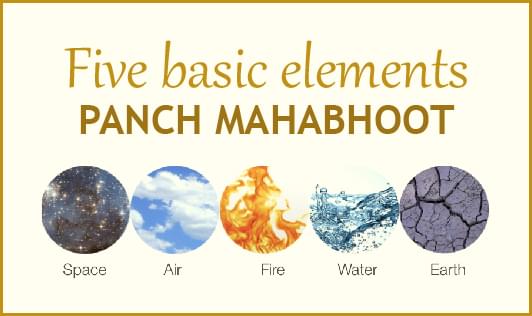Ayurveda is the science of life. The word ‘Ayurveda’ is formed of two words “Ayu”and “Veda”. “Ayu” means life and “Veda” means to know or to attain.
Thus the term “Ayurveda itself depicts the meaning of the science which imparts knowledge of life”. Hence, Ayurveda has deeply thought of human life, its surrounding universe and the basic constituents responsible for their formation.
Ayurveda regards that human life is the epitome of the universe and it is carved out of the universal elements which closely knit both together.

In short Ayurveda is composed of Five Basic elements, the Panchamaha bhootas, namely:
- Prithvi (earth)
- Apya (water)
- Teja (Fire)
- Vayu (air) and
- Akash (ether).
As the human body is similarly constituted, there is a fundamental harmony between universe and man, a healthy balance between the microcosm and the macrocosm.
According to Ayurveda, health is the dynamic integration between environment, body, mind and spirit. It lays great emphasis on preservation and promotion of health, thereby preventing the diseases. Elaborate description is available on personal hygiene which includes diet and regimen to be followed daily (Dinacharya) seasonal regimens (Ritucharya) and sadvritta (Behavioral and ethical principles). Observance of certain rules regarding suppressible and nonsuppressible urges also paves way towards positive health.
Ayurveda advises strictly to follow the above principles related to daily regimen, seasonal regimen behavioral and ethical principles and a person who follows these rules will never be a Victim to diseases.
Now-a-days due to modernization, the changes in life style are observed and the day to day regimen as prescribed in Ayurveda could not be followed properly. So the human beings are suffering from various diseases. Ayurveda prescribed a rational treatment for various diseases, which includes diet (Aahar), Activities (Vihar) and Medicines (Ausadhi).





